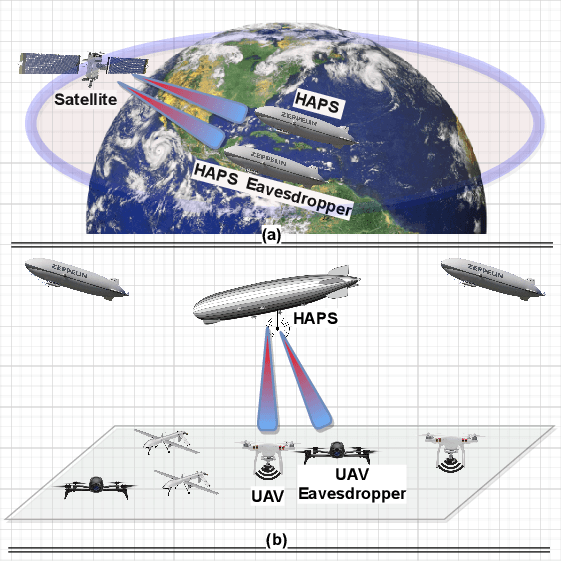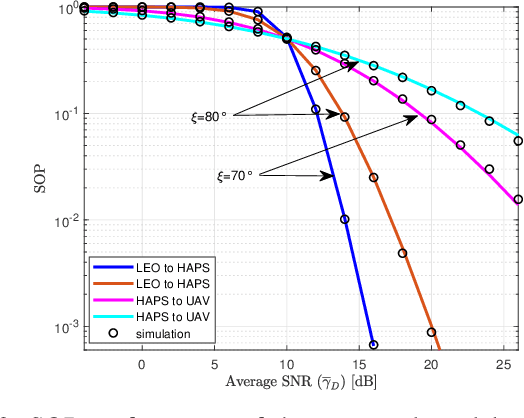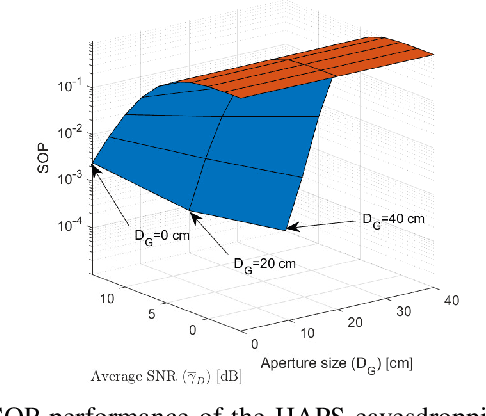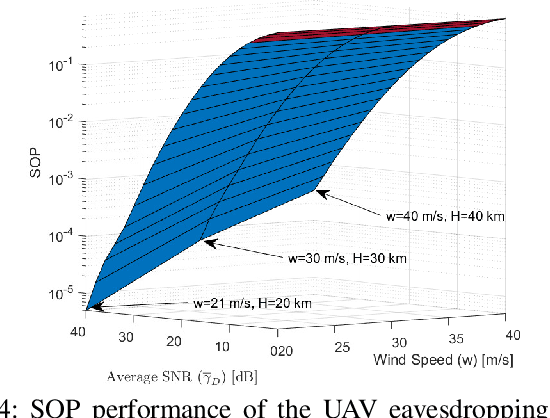Physical Layer Security Framework for Optical Non-Terrestrial Networks
Paper and Code
Jun 15, 2021



In this work, we propose a new physical layer security framework for optical space networks. More precisely, we consider two practical eavesdropping scenarios: free-space optical (FSO) eavesdropping in the space and FSO eavesdropping in the air. In the former, we assume that a high altitude platform station (HAPS) is trying to capture the confidential information from the low earth orbit (LEO) satellite, whereas in the latter, an unmanned aerial vehicle (UAV) eavesdropper is trying to intercept the confidential information from the HAPS node. To quantify the overall performance of both scenarios, we obtain closed-form secrecy outage probability (SOP) and probability of positive secrecy capacity (PPSC) expressions and validate with Monte Carlo simulations. Furthermore, we provide important design guidelines that can be helpful in the design of secure non-terrestrial networks.
 Add to Chrome
Add to Chrome Add to Firefox
Add to Firefox Add to Edge
Add to Edge